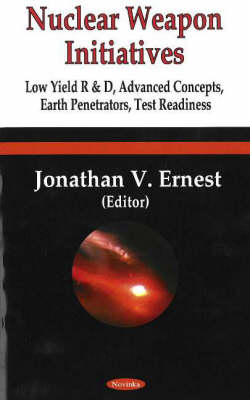The Bush Administration completed its Congressionally-mandated Nuclear Posture Review in December 2001. The review led to major changes in US nuclear policy. It found that the Cold War relationship with Russia was 'very inappropriate' and that this nation must be able to deal with new threats. It planned to retain Cold War-era nuclear weapons, which would suffice for many contingencies, though at reduced numbers. To complement these weapons so as to improve US ability to deal with new, more dispersed threats in various countries, the Administration sought to explore additional nuclear capabilities. These initiatives are controversial. Supporters claim that the first three initiatives would enhance deterrence, thereby reducing the risk of war, and that some weapons that might result from the initiatives could enable the United States to destroy key targets in nations that may pose a threat. Critics are concerned that these initiatives would lead to nuclear testing, increase the risk of nuclear proliferation, and make US use of nuclear weapons more likely. Regarding enhanced test readiness, the Administration argues that nuclear testing might be needed, for example, to check fixes to weapon types with defects, and that 24 to 36 months is too long to wait; critics are concerned that shortening the time to test could signal a US intent to test, and that renewed testing could lead to a renewed interest in testing by other nations. CONTENTS: Preface; The Broader Context for the Four Initiatives; R & D on Low -- Yield Nuclear Weapons; Advanced Concepts Initiative; Robust Nuclear Earth Penetrator; Nuclear Test Readiness; Concluding Observations; Index.
- ISBN10 1594542031
- ISBN13 9781594542039
- Publish Date 7 April 2005
- Publish Status Unknown
- Publish Country US
- Imprint Nova Science Publishers Inc
- Format Paperback
- Pages 96
- Language English
